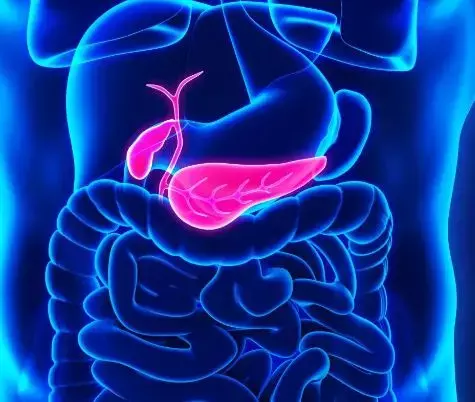- Home
- Medical news & Guidelines
- Anesthesiology
- Cardiology and CTVS
- Critical Care
- Dentistry
- Dermatology
- Diabetes and Endocrinology
- ENT
- Gastroenterology
- Medicine
- Nephrology
- Neurology
- Obstretics-Gynaecology
- Oncology
- Ophthalmology
- Orthopaedics
- Pediatrics-Neonatology
- Psychiatry
- Pulmonology
- Radiology
- Surgery
- Urology
- Laboratory Medicine
- Diet
- Nursing
- Paramedical
- Physiotherapy
- Health news
- Fact Check
- Bone Health Fact Check
- Brain Health Fact Check
- Cancer Related Fact Check
- Child Care Fact Check
- Dental and oral health fact check
- Diabetes and metabolic health fact check
- Diet and Nutrition Fact Check
- Eye and ENT Care Fact Check
- Fitness fact check
- Gut health fact check
- Heart health fact check
- Kidney health fact check
- Medical education fact check
- Men's health fact check
- Respiratory fact check
- Skin and hair care fact check
- Vaccine and Immunization fact check
- Women's health fact check
- AYUSH
- State News
- Andaman and Nicobar Islands
- Andhra Pradesh
- Arunachal Pradesh
- Assam
- Bihar
- Chandigarh
- Chattisgarh
- Dadra and Nagar Haveli
- Daman and Diu
- Delhi
- Goa
- Gujarat
- Haryana
- Himachal Pradesh
- Jammu & Kashmir
- Jharkhand
- Karnataka
- Kerala
- Ladakh
- Lakshadweep
- Madhya Pradesh
- Maharashtra
- Manipur
- Meghalaya
- Mizoram
- Nagaland
- Odisha
- Puducherry
- Punjab
- Rajasthan
- Sikkim
- Tamil Nadu
- Telangana
- Tripura
- Uttar Pradesh
- Uttrakhand
- West Bengal
- Medical Education
- Industry
Ablative Radiation Therapy Improves survival in pancreatic cancer: JAMA Oncology

Surgical resection has been considered the only curative option for patients with pancreatic cancer. Nonoperative local treatment options that can provide a similar benefit are needed. Emerging radiation techniques that address organ motion have enabled curative radiation doses to be given in patients with inoperable disease.
A recent study on patients with inoperable LAPC found that A-RT following multiagent induction therapy for locally advanced pancreatic cancer was associated with durable locoregional tumor control and favorable survival.The findings have been put forth in JAMA Oncology.
Ablative RT combines stereotactic technology for precise RT delivery with innovative solutions for internal organ motion and radiation science-informed fractionation to achieve an ablative dose to the target while sparing the adjacent luminal gastrointestinal tract.
Researchers undertook the current study to determine the association of hypofractionated ablative radiation therapy (A-RT) with survival for patients with locally advanced pancreatic cancer (LAPC) treated with a novel radiation planning and delivery technique.
This cohort study included 119 consecutive patients treated with A-RT between June 2016 and February 2019 and enrolled in a prospectively maintained database. Patients were treated with a standardized technique within a large academic cancer center regional network. All patients with localized, unresectable, or medically inoperable pancreatic cancer with tumors of any size and less than 5 cm luminal abutment with the primary tumor were eligible. Ablative RT (98 Gy biologically effective dose) was delivered using standard equipment. Respiratory gating, soft tissue image guidance, and selective adaptive planning were used to address organ motion and limit the dose to surrounding luminal organs.
The primary outcome was overall survival (OS). Secondary outcomes included incidence of local progression and progression-free survival.
Data analysis revealed the following facts.
- Between 2016 and 2019, 119 patients (59 men, median age 67 years) received A-RT, including 99 with T3/T4 and 53 with node-positive disease, with a median carbohydrate antigen 19-9 (CA19-9) level greater than 167 U/mL.
- Most (116 [97.5%]) received induction chemotherapy for a median of 4 months (0.5-18.4). Median OS from diagnosis and A-RT were 26.8 and 18.4 months, respectively.
- Respective 12- and 24-month OS from A-RT were 74% (95% CI, 66%-83%) and 38% (95% CI, 27%-52%).
- Twelve- and 24-month cumulative incidence of locoregional failure were 17.6% (95% CI, 10.4%-24.9%) and 32.8% (95% CI, 21.6%-44.1%), respectively.
- Postinduction CA19-9 decline was associated with improved locoregional control and survival. Grade 3 upper gastrointestinal bleeding occurred in 10 patients (8%) with no grade 4 to 5 events.
Observing the results, the team concluded, "Ablative RT (98 Gy BED) following induction systemic therapy for LAPC was safe and associated with durable local tumor control, which could have contributed to a longer survival duration."
For the full article follow the link: 10.1001/jamaoncol.2021.0057
Primary source: JAMA Oncology
Dr Satabdi Saha (BDS, MDS) is a practicing pediatric dentist with a keen interest in new medical researches and updates. She has completed her BDS from North Bengal Dental College ,Darjeeling. Then she went on to secure an ALL INDIA NEET PG rank and completed her MDS from the first dental college in the country – Dr R. Ahmed Dental College and Hospital. She is currently attached to The Marwari Relief Society Hospital as a consultant along with private practice of 2 years. She has published scientific papers in national and international journals. Her strong passion of sharing knowledge with the medical fraternity has motivated her to be a part of Medical Dialogues.
Dr Kamal Kant Kohli-MBBS, DTCD- a chest specialist with more than 30 years of practice and a flair for writing clinical articles, Dr Kamal Kant Kohli joined Medical Dialogues as a Chief Editor of Medical News. Besides writing articles, as an editor, he proofreads and verifies all the medical content published on Medical Dialogues including those coming from journals, studies,medical conferences,guidelines etc. Email: drkohli@medicaldialogues.in. Contact no. 011-43720751


